Growing up poor and, occasionally homeless, I have an intense fear of ending up without a place to stay. As such, I came with a month long reservation at a hotel (~$600 at the time). We found an apartment within a week for $250/month, so I ended up paying double for that first month. Found our property within the first couple of months, but closing took another 2-3 months. After that, things went pretty smooth as far as settling into our home.
Coming from a New England (northeastern USA) town of ~400 people, I hate crowds, hate heating & cooling bills, and hate bugs. Thus, a decent sized property in a rural location with windows and doors was a necessity. Also, since I retired at 38 and needed my savings/investments to last a good long while, I didn't want to pay for heat or cooling (used to cost me ~$2-3k/yr). Because I was looking for a well built house with at least a hectare of land (ideally I wanted more) and at the right elevaation, there were very few options. There were a fair amount of properties of 30-80 hectares for under $100k but with no house or an adobe house with no electricity, water, doors or windows, and there were tons of really nice houses for $50k-100k, but with less than 1000m2 of land.
What I discovered was that most larger properties were either used for farming and, as such, had at most a shack, or, they were seen as vacation estates and were way overpriced. And none of the real estate agents at the time disclosed the location of the properties they were offering and none knew (or would disclose) the elevation.
Eventually, I found a property the previous owner was using as an income producing property which was a hectare with three one bedroom houses offerred for $140k. For those who don't know, because we're on the equator, you can basically choose your temperature by choosing your elevation. Where the property I bought was (and where I'm now at), it's about 1700m above sea level and the daily temp is usually between 19 and 27c, which has been almost perfect for me, though I'll admit I'm now sweating when it is above 27c and looking for my long underwear when its 18c.
As for suggestions:
1 - Don't try to do anything online (except maybe rent a room for your first night). Unless you're arriving during carnaval, you probably won't have any problem finding a place to stay (and likely at a better price that you'll encounter online).
2 - I'll reiterate others' advice: If you can, rent instead of buying. It wouldn't have worked for us (finding a property for sale of over a hectare with at least one decent structure at a decent elevation was tough, I believe finding a rental property that met our criteria for under $1k/month would have been impossible. However, let's assume I would have been ok in a town or city: You take that $90k you would have spent for a decent house and invest it in a few local co-ops (each account can only be insured up to a max of $32k) at a 8-9.5% interest rate. That gives you a monthly passive income of about $650, enough to have quite a nice rental and still have some money left over.
3 - Chill out. I've seen too many people that "love it here" the first week or month but come from such a priviledged lifestyle that they can't deal with adversity. Like the internet or electric going out sporadically, or the rainy season making your road impassable for 3-4 months, or being stuck on a bus near machala for 30 hours without food, water, or a bathroom because of "protesters" blocking the road. All three have happened to me and, with the exception of the bus, I handled each calmly and with acceptance. That said, protesters blocking roads should be dealt with violently, preferably by officers with guns.
And that's actually the reason my family now refuses to visit this country - most people (especially the elderly) can't imagine that they would be trapped in a 35c (95f) bus without food, water, or toilet for over a day by people blocking roads and that the government would do literally nothing to unblock the roads. That seems like something you should expect in a war zone or failed state but not within any functioning nation. But as long as you can accept the war-zone/failed-state aspects of living here, most the time it's quite nice.
 Food in Ecuador
Food in Ecuador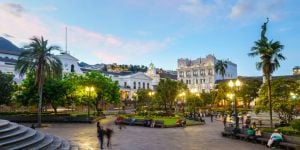 Work in Ecuador
Work in Ecuador Healthcare in Ecuador
Healthcare in Ecuador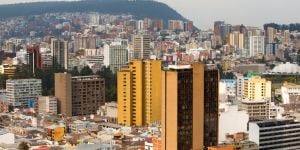 Opening a bank account in Ecuador
Opening a bank account in Ecuador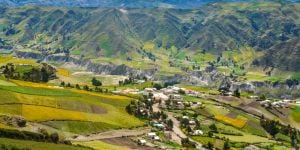 Family and children in Ecuador
Family and children in Ecuador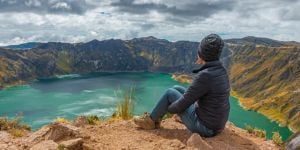 The Working Holiday Visa for Ecuador
The Working Holiday Visa for Ecuador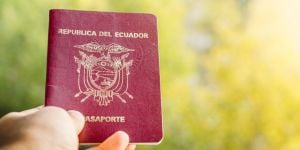 Permanent Residency in Ecuador
Permanent Residency in Ecuador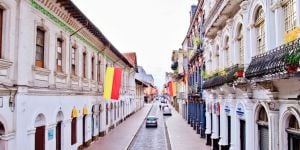 Work in Cuenca
Work in Cuenca


